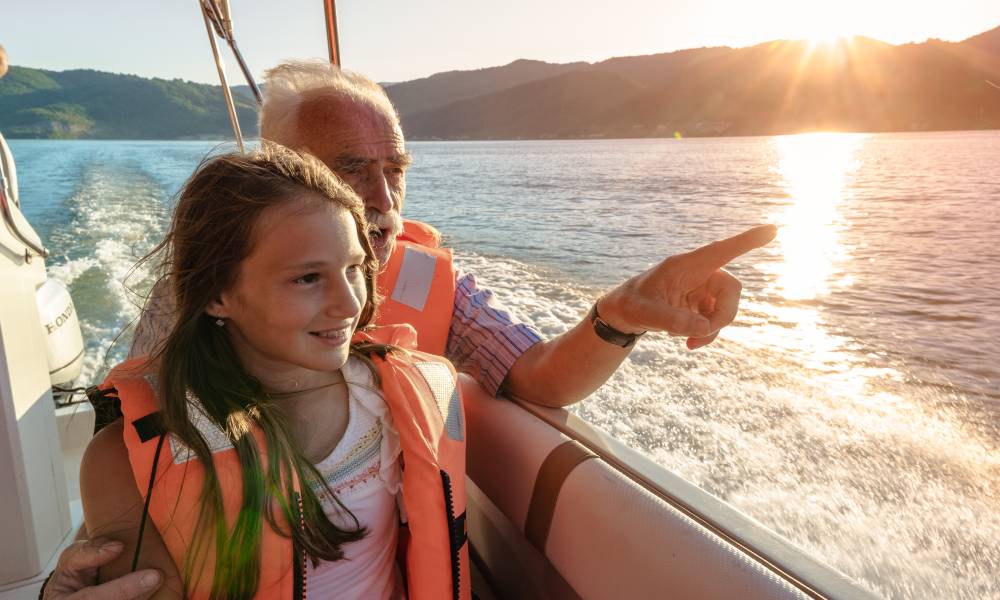Boating is one of the most enjoyable ways to experience the great outdoors, offering a perfect blend of relaxation and adventure. However, to maintain a fun and safe experience for everyone on board, it’s essential to keep safety at the forefront of your mind. This guide on recreational boating covers boat safety tips everyone should know in order to navigate each outing with confidence.
Wear Your Life Jacket
The first rule of boating safety is simple—always wear your life jacket. Even if you’re a strong swimmer, unpredictable situations like rough waters or sudden weather changes can turn your outing into a dangerous scenario. Make sure everyone on board has a properly fitted life jacket that meets safety standards. It’s a small effort that can make a big difference in maintaining everyone’s well-being.
Understand How Waves Affect Boating
Waves can affect your boating experience in many ways, including forcing passengers to lose their balance and put themselves in dangerous positions. When navigating through waves, approach them at a 45-degree angle to reduce the impact and prevent the boat from rocking too violently. This technique will help you prevent capsizing and keep everyone on board safe.
Monitor the Weather Closely
Weather conditions can change rapidly, especially on open water. Before heading out, check the weather forecast and keep an eye on the sky throughout your trip. Cloud formations, wind speed, and temperature drops can signal incoming storms. If bad weather approaches, head back to shore immediately to avoid finding yourself in hazardous conditions.
Follow Best Practices for Your Boat’s Battery
A well-maintained battery is essential for a successful boating trip. To prepare your boat for the water, follow the best practices for your boat’s battery life. Regularly check the battery’s charge, clean the terminals, and keep it properly stored when not in use. A dead battery can leave you stranded, so take these steps seriously to avoid any battery trouble.
Maintain Your Boat Regularly
Routine maintenance is key to boat safety. Regularly inspect your boat for any signs of wear and tear, such as cracks in the hull, frayed ropes, or malfunctioning equipment. Keeping your boat in top condition will help you address any potential issues before they become serious problems while you’re on the water.
Know Your Navigation and Communication Tools
Understanding how to use your navigation and communication tools is essential for safe boating. Make sure you’re familiar with your boat’s GPS, radio, and other navigational aids. In case of an emergency, knowing how to use these tools effectively can save your life. Always have a backup method for communication, such as a satellite phone or signal flares, in case your primary systems fail.
Recreational boating offers endless opportunities for outdoor fun. However, safety should always remain a top priority. These boat safety tips everyone should know will prepare you to handle whatever the water throws your way. With the right preparation, you can fully enjoy your time on the water and keep everyone safe.


